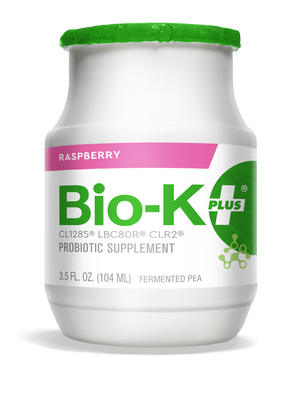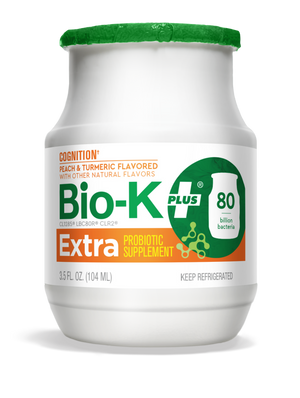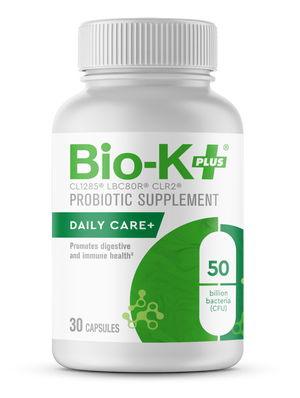How to Manage Stress
How to Manage Stress: An Overview of Stress Management Techniques, Tips, and Strategies
Stress. It seems like so many aspects of life revolve around this singular word. Stress from work, stress at home, stress from family, friends, finances—oh my. The list of stressors in our daily lives will never be nonexistent, but when this list becomes too long, a healthy amount of stress can turn into a full blown breakdown for your mental health.
While a little bit of stress can help us stay motivated, overwhelming levels of stress should be curbed as quickly as possible. In order to avoid mental and physical health risks, you’ll need a few tips, strategies, and stress management techniques in your toolbelt. Fortunately, we know a thing or two about wellness, so we’ve got you covered in this department. If you’re looking for stress relief tips, our experts can help.
Continue reading for everything you need to know about how to manage stress in a healthy way.
Risks Associated with Stress
Before we dive into the management part of stress management, it’s important to have a general understanding of the stress part, as well.
The body’s response to ongoing stress can take a serious toll on physical and mental wellbeing—and symptoms of stress may appear in a variety of ways. If you think you might be suffering from an overload of stress, keep an eye out for the following signs:
- Trouble with memory – Both short and long term memory can be affected by stress levels due to the impact of high cortisol levels on a vital part of the brain: the hippocampus, a major player in learning and memory.
- Irritability, poor judgement, and brain fog – In addition to memory, stressful feelings can also lead to decreased brain cognition. In layman’s terms, this means too much stress can lead to poor perception and reception of information and the world around us. As a result, high stress levels can lead to mood swings, poor judgement, and difficulty concentrating. If you want to improve focus and concentration naturally, you have to first be able to keep your stress level in check.
- Lowered immune system and stomach issues – Moving away from the brain, it’s crucial to recognize the physical symptoms of stress, as well. One of the most common physiological side effects of too much stress involves immunity. The lymphatic system—which plays a role in immune response—can become overworked when the body produces stress hormones, thus lowering immune response.
- Digestive issues – As far as the digestive system is concerned, stress can also cause inflammation in the intestines, hinder the stomach’s absorption process, and even kill off good bacteria in the gut. This is why maintaining a healthy gut microbiota is so important, especially during times of stress. Luckily, a probiotic regimen can help keep the digestive system in good condition. That’s why Bio-k® products can also be used in your healthy lifestyle by helping support your stress management practice.
- Cardiovascular problems – High levels of the stress hormone cortisol have consistently been linked to increased blood pressure, irregular pulse, and heart disease. Similarly, the effect of this fight or flight response can also cause insomnia, nighttime awakenings, and poor REM cycle.
5 Ways To Help Manage Stress
Now that you know the impact stress can have on your mind and body, here are five stress management tips to help keep your life in balance.
#1 Breathing Techniques
You’ve probably heard that deep breathing can help reduce stress levels, but the role breathing plays in your mental wellbeing actually goes far beyond inhaling and exhaling. One of the best tips for managing stress is to practice breathing exercises.
The type of breathing exercise techniques you use will have different effects and levels of success. On top of that, the frequency and intensity of your breathing exercises will also determine how effective they are at combating everyday stress.
Let’s take a look at some of the best ways to incorporate breathing techniques into your stress management routine:
- First, take it slow – Quick, shallow breathing has actually been shown to trigger the body’s stress response and even lead to panic attacks for some individuals. This is why it’s absolutely essential to make sure your breathing is slow and controlled when performing any breathing exercises.
- Try single nostril breathing – The practice of Anuloma Viloma Pranayama is an extremely effective technique for reducing stress levels. Simply block the right nostril with the thumb and slowly breathe in through the left nostril for six seconds. Hold the breath for six more seconds, then release the right nostril and block the left nostril. Finally breathe out of the right nostril for another six seconds. Repeat this process for 30 minutes every day to see results.
- Make longer exhales – Studies have also shown that increasing the length of your exhale—compared to your inhale—can help calm the nervous system and relax the mind and body. Alternatively, lengthening your inhale compared to your exhale can actually increase feelings of stress and trigger the body’s fight or flight response.
Controlling the breath may provide immediate stress relief depending on your situation, but sticking to a routine is actually the best way to utilize breathing exercise. Try making these breathing exercises part of your daily routine for optimal results.
#2 Meditation and Mindfulness Practice
Another common method of targeting everyday stress (and other negative emotions) is mindfulness and meditation practice. Although these two techniques are often mentioned in the same breath, they’re actually quite different.
Here’s what each practice entails and how they can both be used for stress management:
Meditation can be used to manage stress by giving the mind a break from anxious, angry, or upsetting thoughts. Some studies have also linked meditation to improved cardiovascular and digestive health, as well as increased ability to focus—three things that stress can often have a negative impact on.
Unlike meditation, mindfulness is not about clearing the mind, but rather staying in tune with what’s going on around you. Most importantly, mindfulness is meant to stop you from thinking and worrying about the past or future. This can help quite a bit with anxiety and stress related to past or upcoming events.
#3 Progressive Muscle Relaxation
One of the biggest physical symptoms of stress is muscle tension. Chronic pain and tightness in the muscles and joints can occur as a result of high stress levels, and targeting this side effect can also help treat the root of the problem.
Numerous studies have linked the practice of progressive muscle relaxation to a decrease in negative emotions and better sleep. Here’s how it works:
This is a wonderful technique for targeting stress because it takes on an active approach. Many people with high stress levels have a difficult time relaxing when their body is already in a tense state. With progressive muscle relaxation, you’re given clear instructions and even permission to purposely tense your muscles. When done correctly and in a controlled manner, this can be a powerful tool for calming the body and mind.
A Note on Timing: Progressive muscle relaxation can be done at any time of day, but studies have shown that performing this technique 30 minutes before bed is particularly effective in reducing stress and promoting restful sleep.
#4 Improve Sleeping Habits
Stress keeps us awake at night, lack of sleep increases cortisol production, cortisol causes feelings of stress—the vicious cycle continues. So, how do we break this cycle and make sleep a part of our stress management routine? The best way to approach this goal is by improving sleep hygiene.
Sleep hygiene refers to the habits, environmental factors, and timing that relates to our sleep schedule. Some of the best actions you can take to improve sleep hygiene include:
- Going to bed and waking up at the same time each day
- Sleeping in a cool, dark room
- Staying away from screens and bright lights at least 30 minutes before bed
- Avoid exercise and large meals too close to bedtime
- Cut back on daytime napping unless absolutely necessary
Regulating your nighttime schedule will lead to more restful sleep, less irritability, and decreased stress levels.
#5 Balance Your Serotonin Levels by taking care of your gut microbiota
Serotonin and dopamine are neurotransmitters that are linked to an uplifted mood and balanced emotions. There are multiple ways to increase your serotonin and dopamine levels but one of the simplest ones is by “hacking” your second brain: your gut.
The gut is sometimes referred to as the second brain because it contributes to the synthesis of neurotransmitters used by the brain. About 90% of the body’s serotonin is produced in the digestive tract. The more diverse your gut microbiota is, the better equipped it is to support your mood and battle stress.
Some probiotics could be a great tool for taking care of our gut microbiota, ensuring your gut is full of good bacteria to help your digestive process and your body’s neurotransmitter production. Adding probiotics to your daily routine could help you manage your stress levels from the inside out.
Bio-K+®: Could be a good ally against stress
When stress begins to affect the body’s natural functions, you may need a supplement to get things under control. The good news? That’s exactly what Bio-K+® is here to do.
Our Bio-K+® Calming Extra Drinkable Vegan Probiotic is formulated with billions of probiotics—AKA the “good bacteria” that your body needs. Our unique formula is specifically designed to support digestive health and a scientifically supported active ingredient was added to help relieve restlessness and nervousness.
Sources:
Irish, L. A., Kline, C. E., Gunn, H. E., Buysse, D. J., & Hall, M. H. (2015, August 1). The Role of Sleep Hygiene in Promoting Public Health: A Review of Empirical Evidence.
PubMed Central (PMC). The Role of Sleep Hygiene in Promoting Public Health: A Review of Empirical Evidence - PMC (nih.gov)
Norelli, S., & Long, A. (2021, July 26). Relaxation Techniques. Relaxation Techniques. https://www.statpearls.com/ArticleLibrary/viewarticle/28326
Said Can, Y., Iles Smith, H., Chalabianloo, H., Ekiz, D., Fernandez Alvarez, J., Repetto, C., Riva, G., & Ersoy, C. (2020, June 1). How to Relax in Stressful Situations: A Smart Stress Reduction System. PubMed Central (PMC). How to Relax in Stressful Situations: A Smart Stress Reduction System - PMC (nih.gov)
Suni Naik, G., Gaur, G. S., & Pal, G. K. (2018, January). Effect of Modified Slow Breathing Exercise on Perceived Stress and basal Cardiovascular Parameters. PubMed Central (PMC). Effect of Modified Slow Breathing Exercise on Perceived Stress and Basal Cardiovascular Parameters - PMC (nih.gov)
Yaribeygi, H., Panahi, Y., Johnston, T., & Sahebkar, A. (2017). The impact of stress on body function: A review. PubMed Central (PMC). The impact of stress on body function: A review - PMC (nih.gov)
Probiotics may help boost mood and cognitive function. Harvard Health. (2019, June 8). https://www.health.harvard.edu/mind-and-mood/probiotics-may-help-boost-mood-and-cognitive-function.






